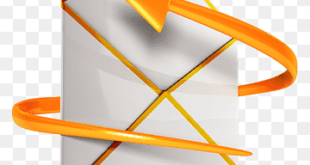Mental health app development has become increasingly important as more people turn to digital tools for managing their mental well-being. Creating an effective mental health app requires thoughtful planning and a deep understanding of users’ needs. In this blog, we’ll explore the key features that can make a mental health app successful and user-friendly.
Understanding User Needs
Research and User- Centered Design
The first step in developing a mental health app is understanding the needs of your target audience. Conducting thorough research helps you identify the problems users face and how your app can address them. User-centered design ensures that the app is intuitive, accessible, and provides real value to users.
Personalization
Personalization is a crucial feature that can significantly enhance the user experience. By allowing users to tailor the app to their preferences, such as setting reminders or choosing content that resonates with them, you make the app more engaging. Personalization also helps users feel more connected to the app, increasing their likelihood of continued use.
User-Friendly Interface
A user-friendly interface is essential for any app, especially one focused on mental health. The design should be simple, clean, and easy to navigate. Avoid overwhelming users with too many options or complicated features. A well-designed interface can help users focus on their mental well-being without feeling frustrated by the app’s functionality.
Core Fehttps://vaytienlaisuatthap.xyz/atures to Include
Mood Tracking
Mood tracking allows users to monitor their emotional state over time. This feature can help users identify patterns in their moods and understand potential triggers for negative feelings. Mood tracking can be as simple as daily check-ins or more detailed with options to add notes, select emotions, and view trends over time.
Journaling
Journaling is a therapeutic activity that can help users process their thoughts and emotions. Including a journaling feature in your mental health app provides users with a safe space to express themselves. It can also be integrated with mood tracking to offer insights based on the user’s entries.
Guided Meditation and Mindfulness Exercises
Guided meditation and mindfulness exercises are popular features in mental health apps. These practices have been shown to reduce stress and anxiety, making them valuable tools for users. Offering a variety of guided sessions can cater to different user preferences, whether they are beginners or experienced in mindfulness.
Professional Support
Connecting users with mental health professionals is a key feature that can set your app apart. This could be through direct chat, video calls, or a directory of licensed therapists. Providing access to professional support ensures that users have the option to seek help when they need it.
Community and Peer Support
Creating a community within your app allows users to connect with others who share similar experiences. This can be in the form of forums, chat groups, or support networks. Peer support is valuable as it helps users feel less isolated and encourages them to share their experiences and offer advice to others.
Security and Privacy Considerations
Data Encryption and Privacy Policies
When developing a mental health app, it’s vital to prioritize user privacy and data security. Implementing strong encryption protocols and clear privacy policies ensures that user data is protected. Users need to trust that their personal information, especially sensitive data related to their mental health, is secure.
Anonymity Options
Offering users the option to remain anonymous can encourage them to use the app without fear of judgment. Anonymity can be particularly important in community forums or peer support features. By allowing users to interact without revealing their identity, you create a safe and supportive environment.
Integration and Accessibility
Integration with Wearable Devices
Integrating your mental health app with wearable devices can enhance its functionality. Wearables can provide additional data such as heart rate, sleep patterns, and activity levels, which can be used to give users a more comprehensive view of their mental and physical health.
Accessibility Features
Accessibility is crucial to ensure that your app can be used by as many people as possible. This includes features like voice commands, adjustable text size, and compatibility with screen readers. By making your app accessible, you cater to users with different needs and abilities.
Conclusion
In summary, mental health app development requires a careful balance of functionality, user experience, and security. Key features such as mood tracking, journaling, guided meditation, professional support, and community connections can make your app a valuable tool for users. Additionally, prioritizing user privacy, offering personalization, and ensuring accessibility are essential to the app’s success. By focusing on these aspects, you can create a mental health app that truly helps users improve their well-being.
FAQs
1. How important is user privacy in a mental health app?
User privacy is extremely important in a mental health app. Users share sensitive information, so it’s crucial to implement strong data encryption and have clear privacy policies to protect their data.
2. What makes a mental health app user-friendly?
A user-friendly mental health app has a simple and intuitive design, easy navigation, and features that cater to the user’s needs without overwhelming them.
3. Why is mood tracking an essential feature?
Mood tracking helps users monitor their emotional state over time, identify patterns, and understand triggers for their feelings, which can be beneficial for managing mental health.
4. How can community features benefit users?
Community features provide peer support, helping users connect with others who have similar experiences. This can reduce feelings of isolation and encourage users to share and receive advice.
5. What role does personalization play in mental health apps?
Personalization enhances user engagement by allowing users to tailor the app to their preferences, making the experience more relevant and enjoyable for them.
 Personal Finance and Attractive Interest Rates Unlock Smart Savings with Low Rates and Expert Financial Tips
Personal Finance and Attractive Interest Rates Unlock Smart Savings with Low Rates and Expert Financial Tips







